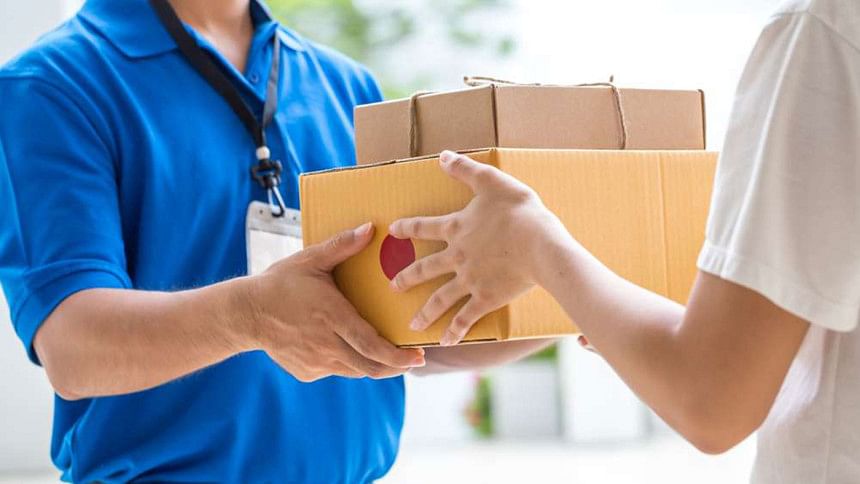Stopping Drugs Smuggling: Couriers denied access to NID server

Despite repeated use of courier services by transnational syndicates to smuggle drugs through Bangladesh to a third country, the government has turned down a proposal to use the National Identity Card server to verify the identity of the product sender.
The Department of Narcotics Control (DNC) had placed the proposal before a virtual meeting of the National Narcotics Control Advisory Committee on December 28 last year. The DNC had said the courier and cargo service companies should be granted access to the NID server.
The advisory committee, led by Home Minister Asaduzzaman Khan, also rejected another proposal seeking use of narcotics detection devices to check whether there are drugs in packets to be sent abroad by courier service companies.
The committee, however, directed the national and international postal and courier service companies to preserve the full name, address, photograph and copy of the NID of the product sender to prevent smuggling of drugs to foreign countries.
The director general of DNC and the president of the Private Courier Service Association have been given the responsibility of implementing the home ministry's directives, issued on February 14 this year.
Private courier service companies said they preserve the product senders' information, but it becomes difficult for them to verify whether the copies of the NIDs are genuine or fake.
Therefore, there should be a system to access the NID server to check drugs trafficking using the courier service, they argued.
Hafizur Rahman Pulok, president of Courier Service Association of Bangladesh, said he took part in a meeting with some government agencies, including the DNC, and told it that they needed access to the NID server to prevent international drugs trafficking.
He said they were already preserving the copy of the product sender's NID, address and mobile phone number. "But when we verify the authenticity of the NID copy after a problem arises, we find it to be fake."
The DNC had prepared the proposal after receiving intelligence that national and international courier service companies were being used by smugglers to send narcotics abroad.
The organisation claimed that smugglers were found sending drugs to the Middle East, America, Australia and some Asian countries.
Smugglers bring in narcotics from neighbouring India and Myanmar and use Bangladesh as a major transit route to send those drugs to other countries, say law enforcement agencies.
In just five months from June last year, the DNC seized around 14 consignments of drugs meant to be sent to Saudi Arabia and the USA by air. The department recovered 21,614 yaba tablets from the consignments, and nine cases and four general diaries were filed over the incidents, according to DNC officials.
Besides, two other consignments -- 12.32kg of amphetamine powder booked for Australia and 39,000 yaba pills booked for the Middle East -- were seized by law enforcers from the cargo village of Hazrat Shahjalal International Airport in Dhaka in September and October last year.
The DNC then took the initiative to allow courier service companies to access the NID server.
Speaking to this correspondent, a top DNC official said while probing the cases, they found that senders used fake product information and the addresses of the recipient and the senders were also fake.
The official said considering these issues, the DNC DG had placed the proposal before the December 28 meeting for granting courier service companies access to the NID server.
The DG at the meeting also spoke about installing modern narcotics detectors and deploying dog squads at all airports, land and sea ports.
According to the minutes of the meeting, the home ministry refused to give access to the NID server and permission to use drugs detection devices as "national security" was linked to it.
But the meeting gave the go-ahead to the DNC to implement a project to set up a dog squad.
DNC DG Muhammed Ahsanul Jabbar yesterday said the advisory committee did not allow the courier service companies to access the NID server for the sake of "national security".
From now on, the full name, address, photograph and copy of the NID of the product sender would have to be submitted to the courier service company concerned, he told The Daily Star.
Asked whether they would again recommend granting access to the NID server, Ahsanul said they would think about it later.
"We may again put forward the proposal for allowing the use of drugs detection devices," he said, adding that they were keeping a close eye on the postal and courier service companies and export cargo handlers.

 For all latest news, follow The Daily Star's Google News channel.
For all latest news, follow The Daily Star's Google News channel. 



Comments